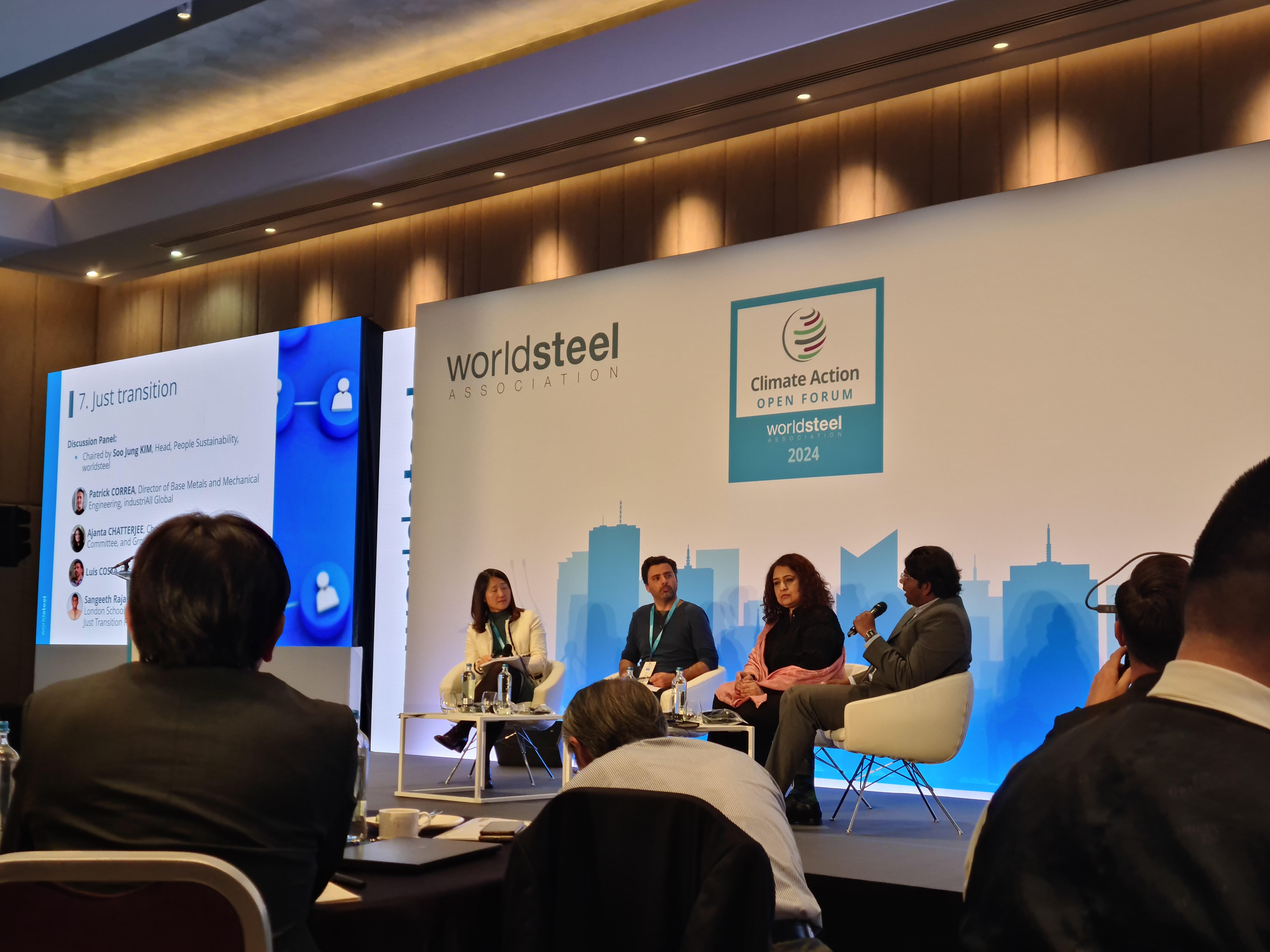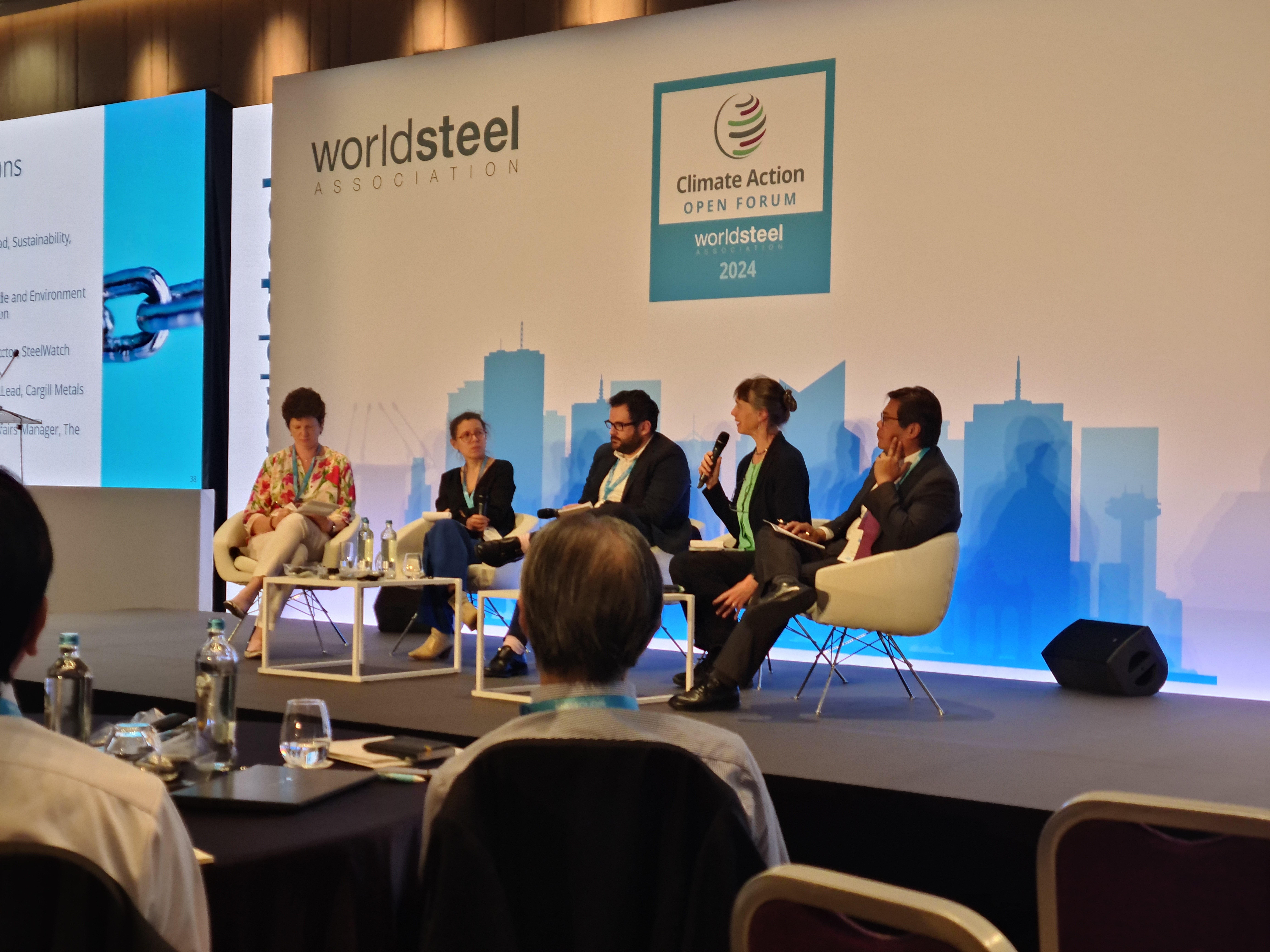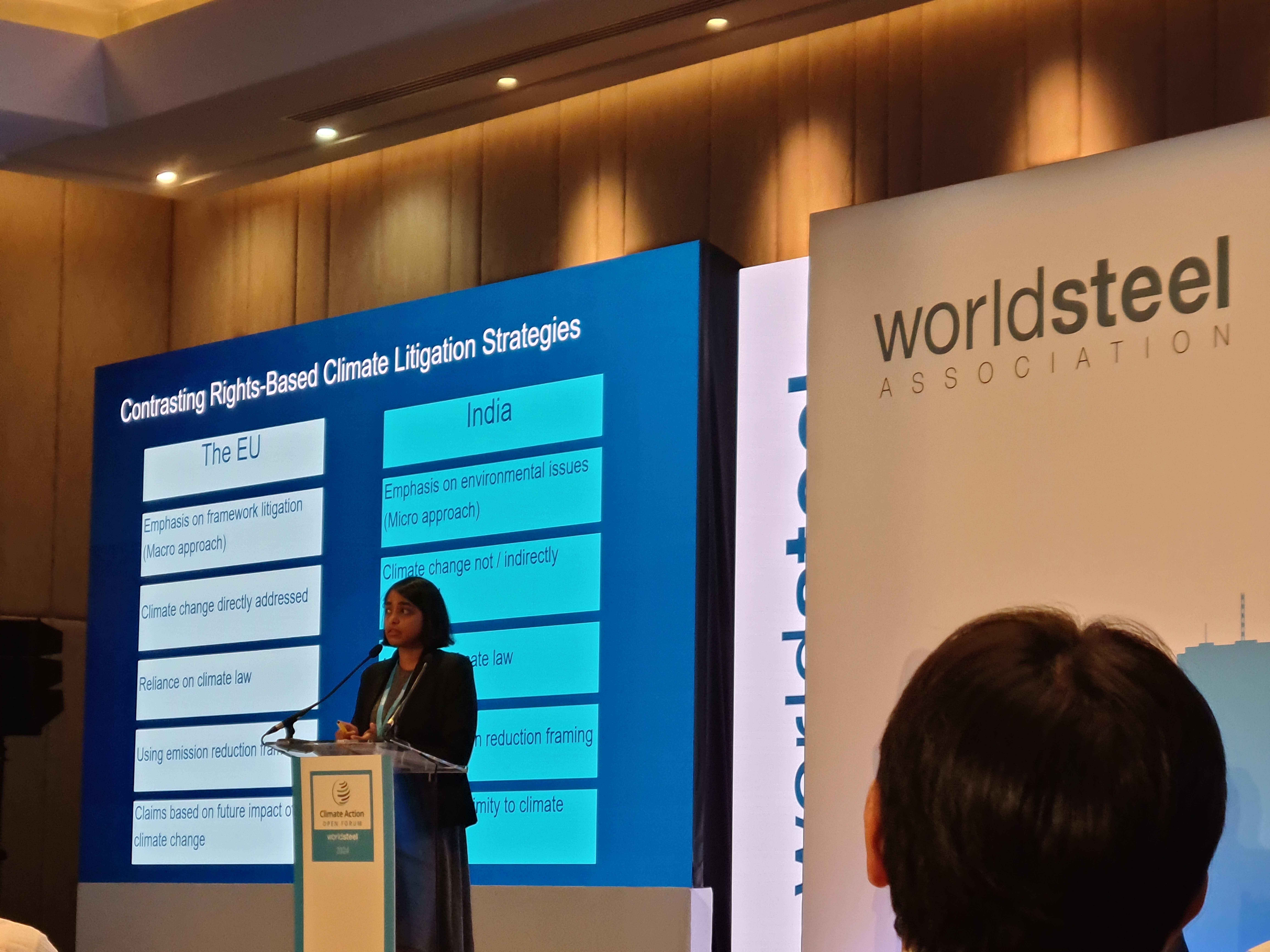The Open Forum organized by the World Steel Association offers a space for stakeholders within the steel industry to exchange experiences and ideas to contribute to the acceleration of carbon dioxide emissions reduction within the sector.

On its third version, the Open Forum 2024 attracted a diverse and geographically widespread-group of participants. For two days, the event gathered representatives from iron and steel producers and associations, steel distributors, intergovernmental organizations, civil society and NGOs, academia, and financial institutions, among others. It was remarkable to see so many regions of the world represented in one venue.
Steel Value Chain
On the June 12th, the second day of the Open Forum, the spotlight was on steel value chain emissions and the steel industry’s interactions with society. The discussions around tracking value chain emissions considered the opportunity for setting a common, easy to understand, standard for emissions reporting. In other words, a standard that helps both the iron and steel producers, as well as buyers, to identify which products have low-carbon dioxide embodied emissions and which do not. During the value chain emissions panel, two ideas remained in my mind. The first is that a product standard alone will not deliver enough ambition. Standards for global company-wide commitments to measure and disclose carbon dioxide emissions, including Scope 3 Greenhouse gases (GHG), are needed to ensure transparency and comparability between iron and steel producers. The second idea is that iron and steelmakers need to stop treating carbon dioxide emissions data as commercially confidential. Emissions data transparency could aid the market growth of low CO2 emissions steel.

Climate Litigation and Just Transitions
The subsequent sessions introduced the concept of climate litigation and of just transition to low-carbon dioxide production processes. The speakers in the session on climate litigation and reputational damage shared examples of when legal actions have been employed by society seeking to recover damages from the effects of climate change. The speakers highlighted cases from North America, India and Europe, giving the session a global relevance. A breakthrough comparison between climate litigation in India and the EU, presented by Parul Kumar from the Energy and Climate Policy and Innovation Council (EPICO), revealed that frequently, climate litigation in low-income economies does not directly address climate change, but instead focuses on issues closer to the community, civil society and biodiversity. The local context matters.

Final Reflections
The day closed with a reflection that I would like to share here. There are a series of simultaneous developments beyond decarbonization that the steel industry needs to quickly adopt. This includes (but is not limited to) transparent and up-to-date data on embodied carbon dioxide and company commitments, legal and reputational aspectsissues that may arise in coming years, and the proper dialogue about all aspects related to the just transition of the sector. All these issues need to be addressed together. Collaboration within the iron and steel industry to establish common ways for measuring, reporting and sharing best practices can support effective steering of these simultaneous developments.
In a moment in history where the world seeks leaders that drive climate action, society is closely following the steel sector’s transformation away from fossil fuel-based conventional steelmaking. The 2024 edition of the Open Forum facilitated a space for conversations with a global and diverse group of stakeholders in the steel value chain and highlighted the need for a transition approach broader than just carbon dioxide emissions.

